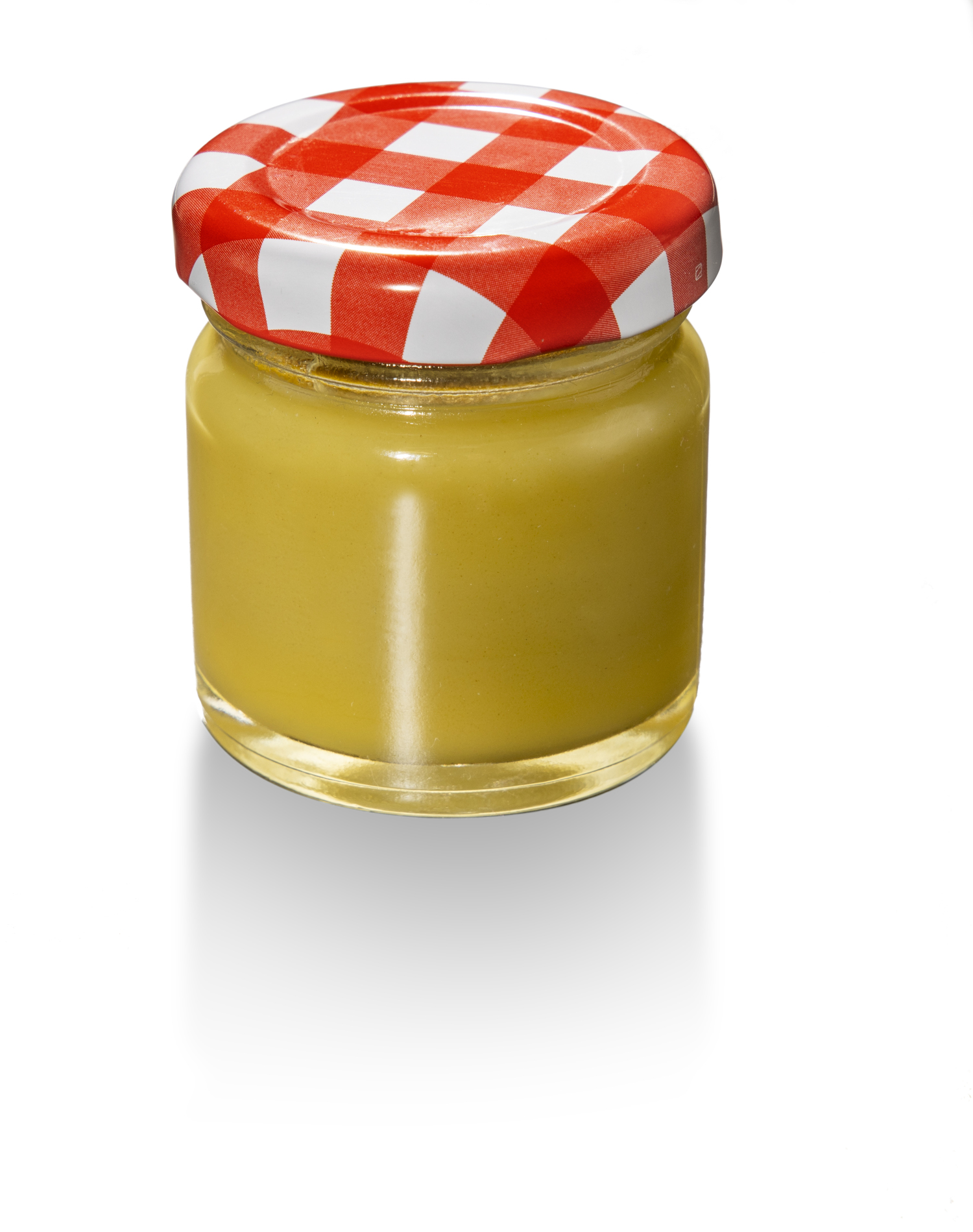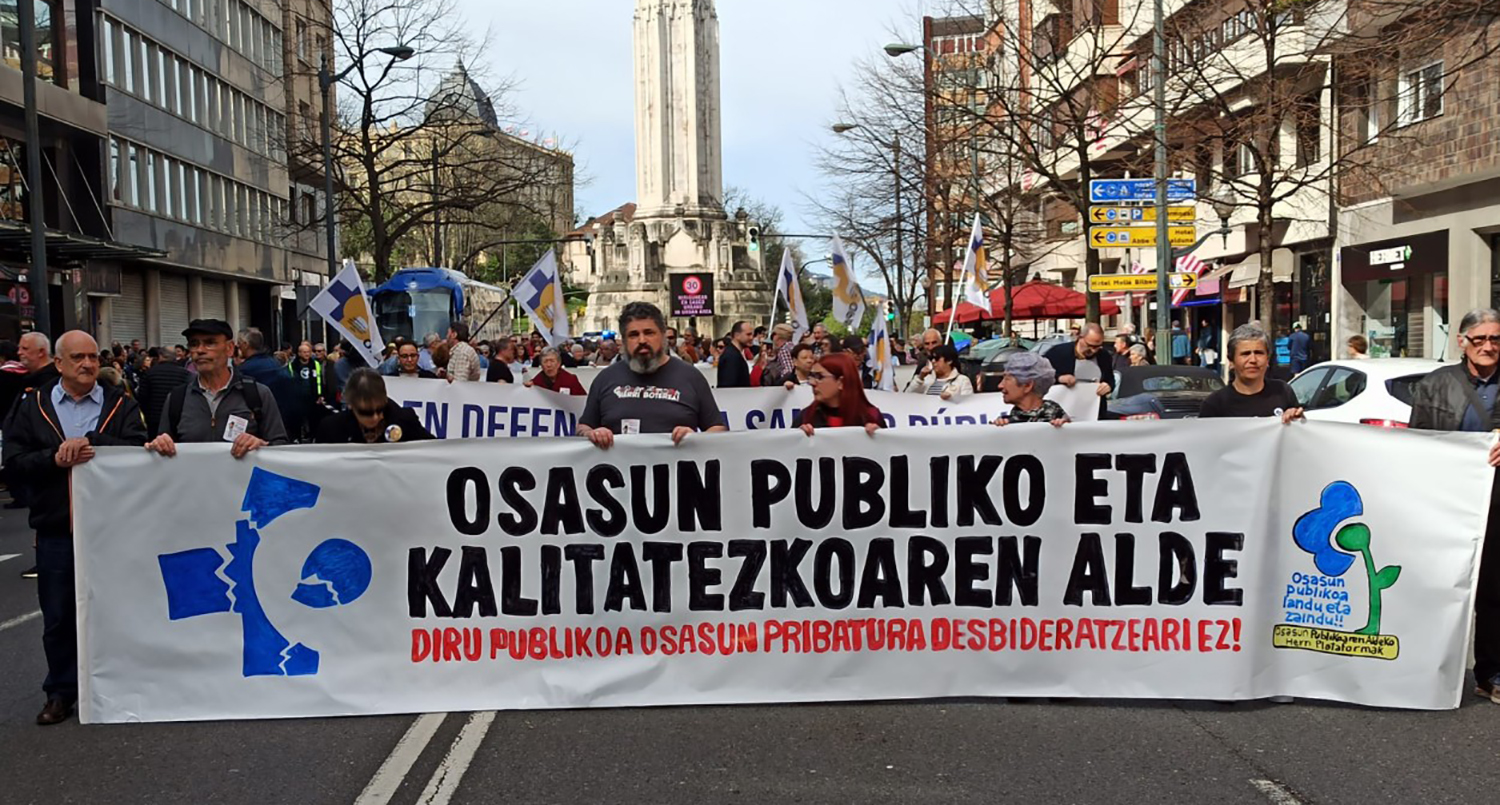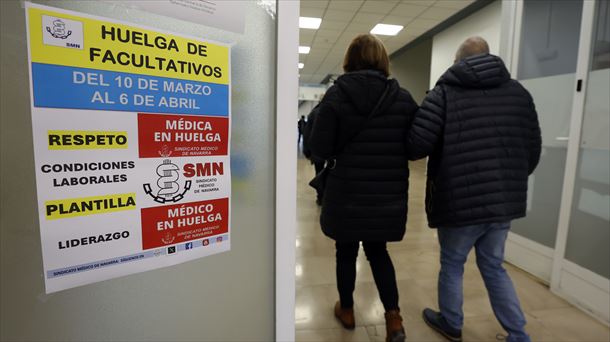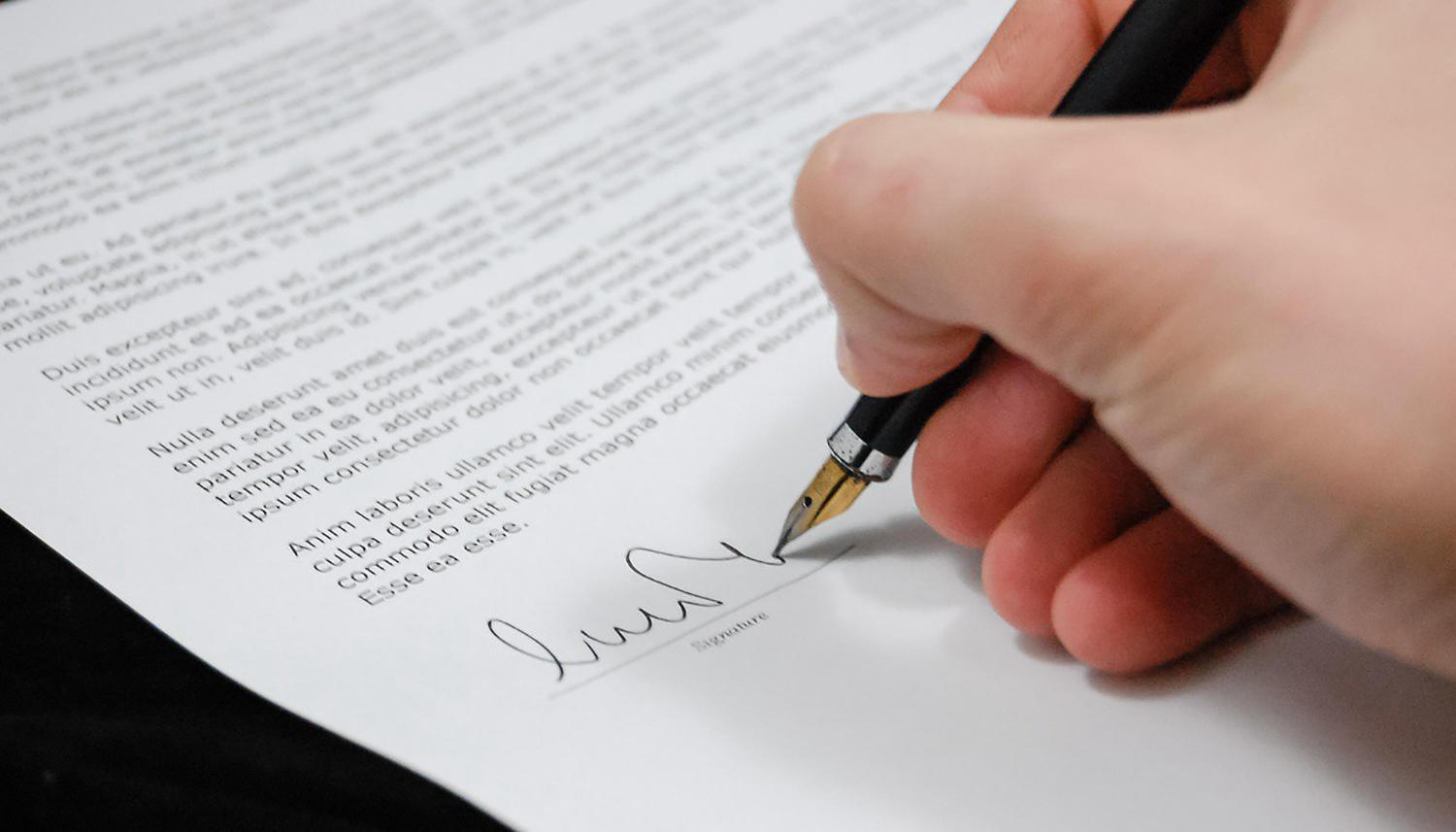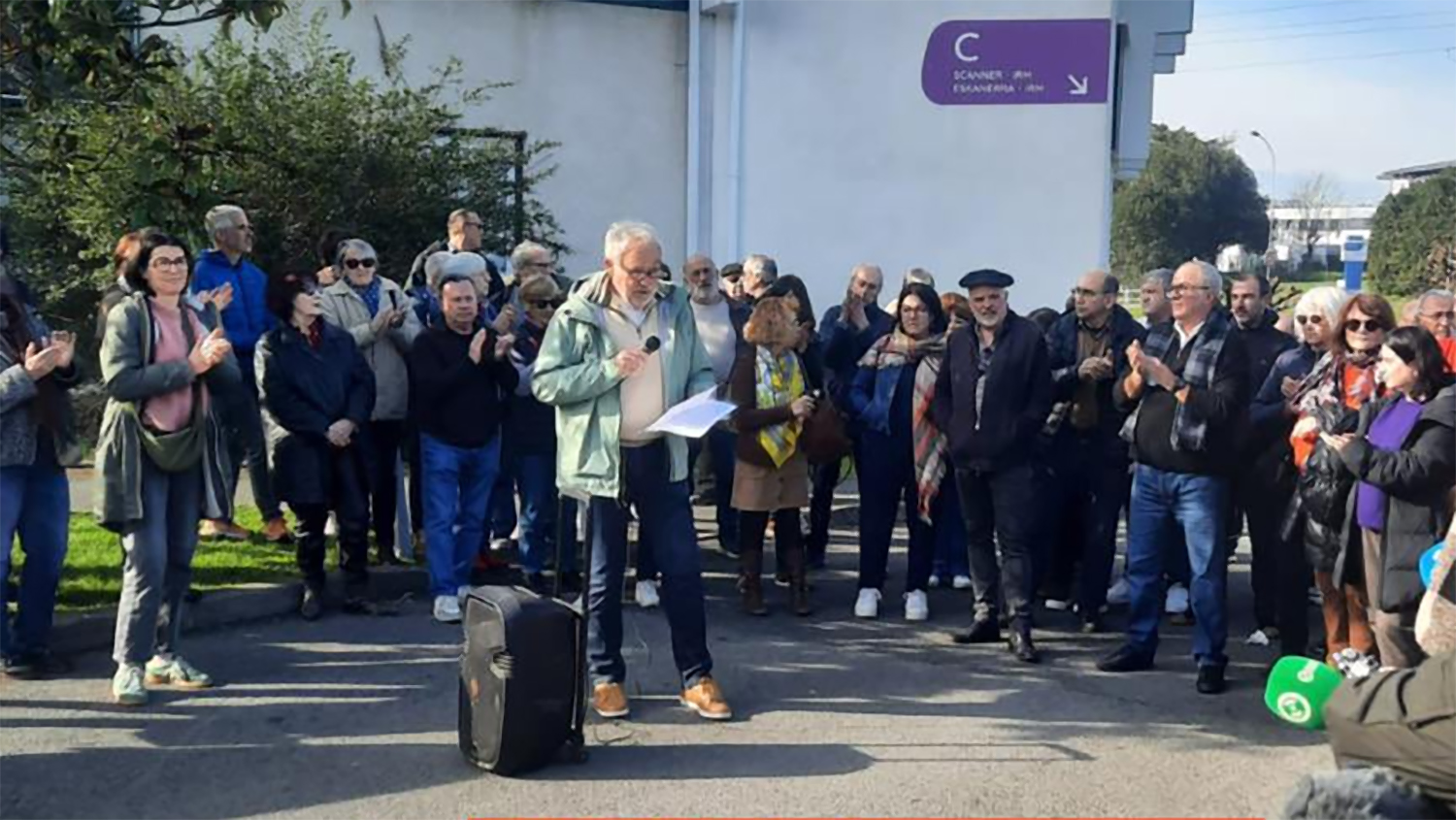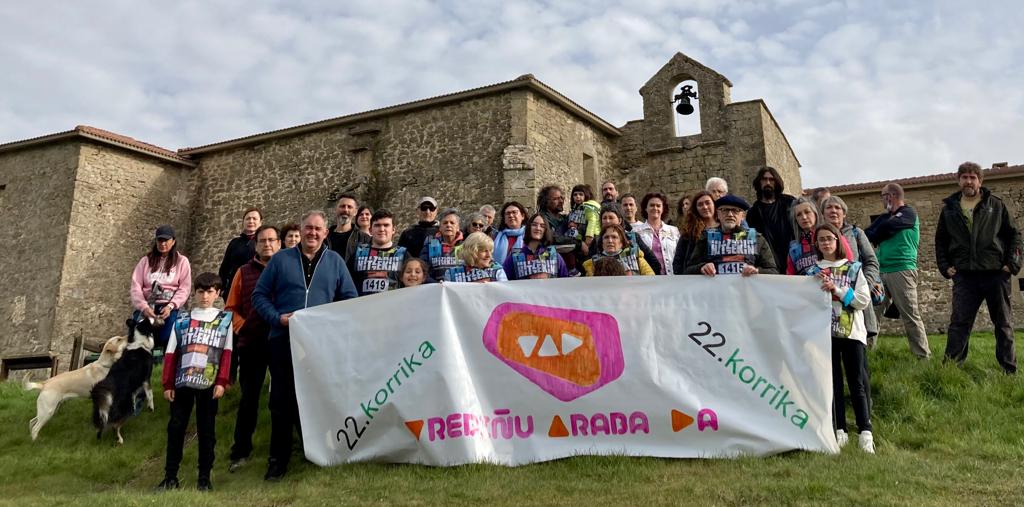If you have cancer in Lebanon, start looking for money to pay for medicines, the state won't take care of you
- Today the statue is bankrupt in Lebanon which a few years ago they called ‘Switzerland of the Middle East’. The health system is a basic service that cannot guarantee citizens. Thousands of people trapped with cancer, serious chronic illness or mental illness have been unable to access the necessary therapies. Citizens are trying to adapt by helping themselves, but many are left with no solution.
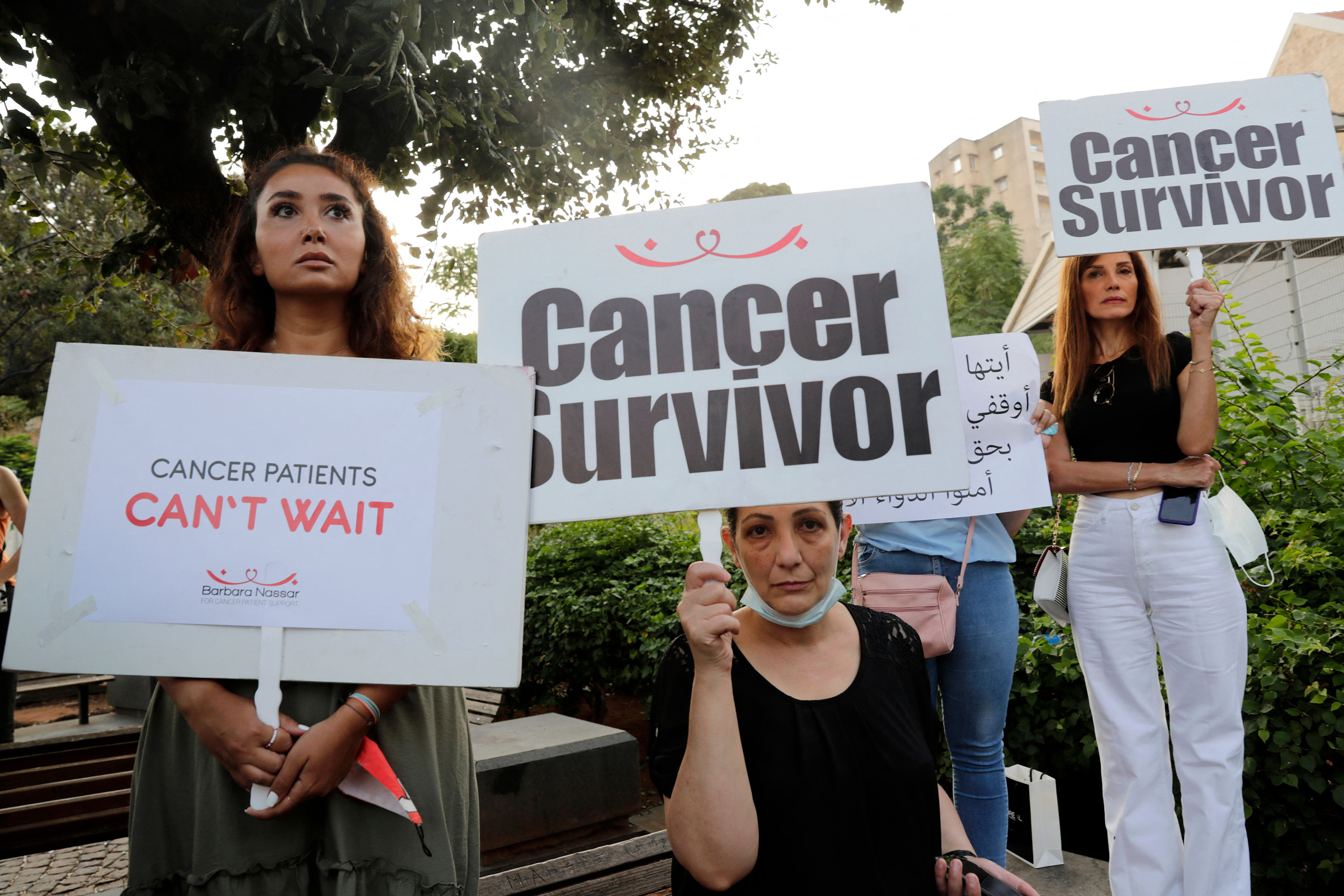
His name was Fawzia Fayad. He became the protagonist of Lebanon's news outlets when he appeared on a television in October 2021, clearing his head, begging authorities to do something to help those who, having cancer like him, can't get treatment, because they don't have enough money to pay for drugs and hospital stays. Lebanon’s economic and financial failure has also sunk the health system. With the cancellation of own funds it has lost 90% of the value of the dollar, pharmaceutical products and materials imported from abroad have increased by 80% and then all medical expenses. Some associations try to help the sick, but as the crisis worsens, their disability has increased. Fawzia Fayad died in March 2022 as he lost his last battle against cancer, becoming a symbol of this health drama for many Lebanese.
Back in October 2021, Firass Abiad was sitting a few meters away from Fawzia Fayad when she shared her struggles with patient cancer. He passed away this morning at only the age of 24… @firassabiad it’s on you. pic.twitter.com/hjM2GoavEP
— What Mhaidly (@EvenMhaidly) March 3, 2022
This is how Au Liban chronicles journalist Muriel Rozelier in the electronic magazine Middle East Eye. The photo written by Anwar Amro at the front of the article shows that four women, who could be middle-class from Bilbao or Baiona, report that cancer survivors and cancer patients can no longer wait. People who have lived like in the West, who have been given away without health service by the state as in a country impoverished or trapped by war when they get sick.
According to the Ministry of Health, 12,000 new cantzers are detected each year in Lebanon. Many of them who could save them to the crisis with proper treatment or at least extend their lives are now condemned to death. Firstly, many of them are diagnosed too late, delaying the visit to the doctor in the absence of money.
The economic failure of
the State has sunk its roots in
health, drastically reducing
resources for
the payment of treatment to citizens.
In Lebanon, the state made crak in 2019, unable to cope with the debt accumulated in previous decades. The great explosion that took place in August 2020 in the port of Beirut and the COVID-19 pandemic gave the last shot to the mortuary structure. The Central Bank of Lebanon, taking out a great scissor, started pruning all public services. As far as health is concerned, not only did it cut funds to pay citizens for medicines and treatments, but it also drastically reduced import permits for medicines from abroad.
An important fact: in this country 85% of the hospital network is in private hands and 15% of the public network is obsolete and has a reputation for corruption. Therefore, the hope of healing a patient in Lebanon depended on his money in the bank before the last crisis. The current "innovation" is that the comedy that once silently carried poor people has become a common practice in the middle class.

Private hospitals have increased rates, the State has reduced – when it has simply left nothing – the part that paid the patient for each treatment. We are talking, for example, about chemotherapy sessions ranging from $1,000 to $3,000. How can we cope with the devaluation of the Lebanese average wage in a country with less than $100 and a minimum wage of $20? We are talking about chemotherapy, let us not now mention the leading treatments for cancer in Lebanon, immunotherapy and other experimental trials.
All
Lebanese
travel to the petrol
station in
search of a drop of fuel; sick people and their
relatives,
pharmacies
In these situations, speculation prevails as opportunistic infections that spread under the protection of serious diseases. If the state reduces by lack of money the treatments imported from abroad, pharmaceutical trafficking and the black market are multiplied immediately, with partners of corrupt health professionals, piling up, hiding, increasing, illegally selling...
Many people suffering from other serious or chronic diseases, such as mental illnesses, such as the journalist Kareem Chehayeb Les pénuries de médicaments, a nouvelle source of tresse pour les Lebanese ("Shortage of drugs, a new source of insatiability for the Lebanese"), live the drowning of those suffering from cancer. Distributors of medical devices have accumulated remedies, arguing the difficulties in importing them, so pharmacies are forced to sell drugs by drip in cities and neighborhoods.

Patients and their families are condemned to go to increasingly distant pharmacies in search of drop or pill. In the end, they are often afraid of having to settle for a less suitable drug and that it will also have further side damage or that it will run out of the necessary daily dose. Although they produce less noise than other serious illnesses, it is not a joke that the problem of the mentally ill in a crisis situation… which causes even more mental illness.
In crises, man can manifest the most generous as his most infamous side, often many of the seriously ill and chronically ill in Lebanon have found palliative in solidarity networks. MeDonations is one of the first: After the explosion in Beirut, volunteers began to collect and distribute medicine as a bridge between the sick and those who wanted to help. They've been confined to the Internet with increased fuel. Since then, @medsforlebanon, @medsforleb and more.
The Lebanese Diaspora
helps the people of
the area a lot
by sending
drugs with travellers to
Lebanon.
The Lebanese diaspora, spread all over the world, seems to help the people of their country a great deal. Sometimes they use the prescription sent online from Lebanon to send a medicine that is not in their home country. Other times they manage to do it without a prescription. In most cases, associations act as intermediaries between what they need and what they offer. The medicines obtained are taken by travellers to Lebanon. Of course, we are talking about medicines that can be bought in pharmacies: medicines from hospitals are impossible to access.
For example, Thurayya Zreik is one of many who need chemical doses to keep the mind balanced in daily life. In her eagerness to help another person who is like her, she has put on her Facebook "Seroquel", which is used for schizophrenia, in a few doses. He soon answers a petition for his mother. Similarly, they operate on networks like Istagram. “The only way we have is to help each other,” Zreik told the journalist.
Begging and pilgrimage is the daily routine of serious and chronic patients in Lebanon. All Lebanese travel at a petrol station in search of a drop of scarce fuel. Even more so the sick and their family pharmacies.

Sare sozialen kontra hitz egitea ondo dago, beno, nire inguruan ondo ikusia bezala dago sare sozialek dakartzaten kalteez eta txarkeriez aritzea; progre gelditzen da bat horrela jardunda, baina gaur alde hitz egin nahi dut. Ez ni optimista digitala nauzuelako, baizik eta sare... [+]
Berrogei urte dira Euskal Herrian autismoaren inguruko lehen azterketak eta zerbitzuak hasi zirela. Urte hauetan asko aldatu da autismoaz dakiguna. Uste baino heterogeneoagoa da. Uste baino ohikoagoa. Normalagoa.
Itxaron zerrendak gutxitzeko Osasunbideak hartutako estrategiak gaitzetsi ditu Plataformak
Endometriosiaren Nazioarteko Eguna izan zen, martxoak 14a. AINTZANE CUADRA MARIGORTAri (Amurrio, 1995) gaixotasun hori diagnostikatu zioten urtarrilean, lehen sintomak duela lau urte nabaritzen hasi zen arren. Gaitz horri ikusgarritasuna ematearen beharraz mintzatu da.
La bajona kolektibo kide Heiko Elbirak salatu du psikiatriak zisheteroarautik aldentzen diren erotikak kontrolatu nahi dituela.
Barakaldoko ospitaleko larrialdi zerbitzuan sufritzen ari diren "saturazioa larria" dela ohartarazi du sindikatuak. Pazienteak korridoreetan artatu dituztela eta krisia kudeatzeko "behar adina langile" ez dagoela salatu du. Errealitate horren aurrean... [+]
Astelehenean abiatu da sindikatuak deitutako greba eta apirilaren 6 arte luzatuko da. Lan-gainkarga salatu eta baldintzak hobetzeko eskatu dute, baita mediku egoiliarrei karrera profesionala aitortzea ere.
Alberto Martinez Eusko Jaurlaritzako Osasun sailburuak argi dio: ez ditu mediku euskaldunak aurkitzen, eta euskarazko osasun arreta ezin da bermatu mediku egoiliar (formazioan dauden espezialista) gehienak kanpotarrak direlako. Mediku euskaldunak bilatzea perretxikotan joatea... [+]
Soco Lizarraga mediku eta Nafarroako Duintasunez Hiltzeko Eskubidea elkarteko kidearen ustez bizi testamentuak heriotza duin bat eskaini eta familiari gauzak errazten dizkio.
Gauez ia aste osoan ateak itxita izaten ditu Donibane Lohizuneko osasun zentro horretako larrialdi zerbitzuak. Herri Berri udal oposizio taldeak deituta, mobilizazioei ekin diete herritarrek eta jadanik 3.000 sinadura bildu dituzte zerbitzu "iraunkor eta eraginkorra"... [+]
Bizilagunek "egia eta politika" merezi dutela adierazi dute, oraindik konponbiderik bilatu ez zaizkien arazo ugari edukitzen jarraitzen baitute. Ikasketei eta osasun arretari loturiko arazoak nabarmendu dituzte.
Udaberri aurreratua ate joka dabilkigu batean eta bestean, tximeletak eta loreak indarrean dabiltza. Ez dakit onerako edo txarrerako, gure etxean otsailean tximeleta artaldean ikustea baino otsoa ikustea hobea zela esaten baitzen.
Gazteagotan baino lotsa handiagoa dauka, baina horrek ez dio saltsa askotan ibiltzeko gogoa kentzen Leire Zabalza Santestebani (Iruñea, 1990). Beste gauza askoren artean, Motxila 21 musika taldeko kidea da. Nabarmendu du musika gauza asko aldarrikatzeko bide izan... [+]











